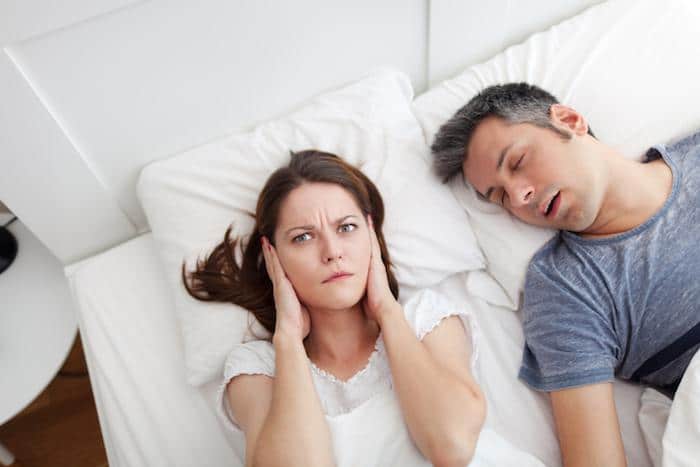 If you’ve been on the receiving end of teasing about your snoring, you may assume it’s an annoyance to your partner or family, and not much more. Snoring can also be a sign of obstructive sleep apnea, which occurs due to the improper relaxation of your throat muscles.
If you’ve been on the receiving end of teasing about your snoring, you may assume it’s an annoyance to your partner or family, and not much more. Snoring can also be a sign of obstructive sleep apnea, which occurs due to the improper relaxation of your throat muscles.
When this happens, your airway narrows, sometimes to a dangerous extent. This causes you to stop breathing — for up to 30 seconds — and once your brain registers this threat, it sends a signal that awakens you momentarily, disrupting your sleep. This seemingly minor interruption can occur as much as 30+ times per hour, robbing you of quality rest.
Fortunately, Dr. David Rad, Dr. Mehdy Rad, and Dr. Carmine Petrarca have treated scores of patients with sleep apnea, as it affects so many.
Sleep apnea: More than one variety
It’s important to know that there are three types of sleep apnea that affect people. As described above, obstructive sleep apnea is the most common and affects about 80% of the 22 million sleep apnea sufferers in this country alone.
If your brain directs the wrong prompts to your breathing muscles, this is a rarer type of sleep apnea, called central sleep apnea.
Finally, complex sleep apnea occurs when you have both central and obstructive sleep apnea at the same time.
Sleep apnea disturbs more than your sleep
What sleep apnea does to you all night leads to problematic symptoms during the day as well:
- Fatigue
- Morning headaches
- Dryness in your mouth
- Problems focusing
As you might expect, living with these discomforts long-term lowers your quality of life considerably. If you’re not on top of your game due to a lack of high-quality rest, your relationships, work performance, and other critical aspects of your life suffer.
Sleep apnea and severe health concerns
We treat sleep apnea seriously, mainly because it can lead to life-altering health conditions, such as:
- High blood pressure
- Type 2 diabetes
- Heart disease
The exhaustion and other problems caused by sleep apnea during your waking hours are even linked to a higher incidence of car accidents.
Fortunately, these and other problems can be halted with proper treatment.
Effective sleep apnea treatments
The most widely known treatment for sleep apnea is also not well-loved: continuous positive airway pressure, or CPAP, machine. Although effective at regulating your breathing while you sleep, it’s somewhat noisy and bulky to use, due to the hose and mask that go over your nose and mouth to deliver uniform air pressure continuously through the night.
Unfortunately, while the CPAP might solve your breathing issues, it can also cause congestion, headache (which you had with sleep apnea), and skin irritation where the mask and straps come into contact with your face. Although you can look into getting a mask that fits better, you should also know that other treatment options are available.
The Rad Orthodontics team offers different treatments for sleep apnea, and they’re equally effective and safe. Alternatives to the CPAP include lighter, non-motorized oral appliances you pop in your mouth before you go to sleep.
They work by moving your jaw forward just a bit, but it’s enough to open your airway, so you have no breathing problems — or thunderous snoring — throughout the night! Since your appliance is tailored to you, it’s as comfortable as possible, with none of the CPAP mask’s heaviness.
As we all grapple with COVID-19, it’s interesting to note that although small, a Finnish study identified the possibility of a link between sleep apnea sufferers and a higher risk for complications if an individual contracts the virus.
This strengthens the case for prompt sleep apnea treatment, and it’s another consideration you should bear in mind as you weigh your treatment choices.
Learn more about alternative sleep apnea treatments
Now that you know that the CPAP isn’t the only game in town for addressing your sleep apnea-induced snoring, schedule a consultation at one of our conveniently located offices. You can call or request an appointment online.
Be assured that we’ve put COVID-19 precautions into place in our offices and offer telehealth visits to keep our patients safe.